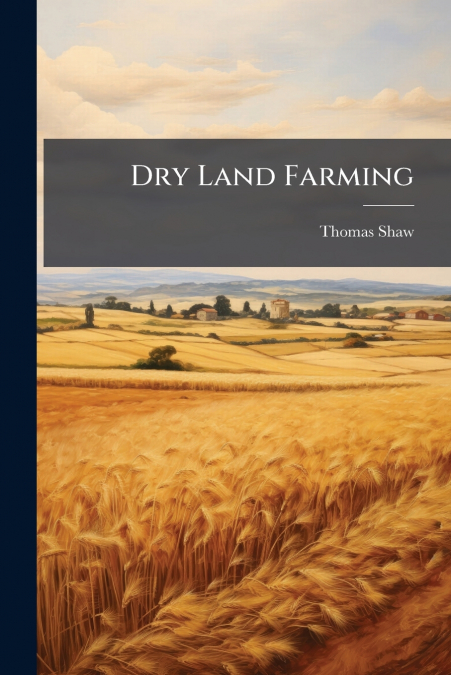
Thomas Shaw
Dry Land Farming, by Thomas Shaw, explores agricultural techniques suitable for regions with limited rainfall. Originally published in 1909, this book provides a comprehensive guide to cultivating crops in arid and semi-arid environments. Shaw emphasizes innovative methods for conserving soil moisture, selecting drought-resistant crops, and implementing effective tillage practices. This historical text offers valuable insights into the challenges and solutions faced by farmers in dry land areas. From soil preparation to harvesting, each stage of the agricultural process is thoroughly examined, providing a practical resource for those seeking sustainable farming solutions. While some techniques have evolved, the underlying principles of water conservation and resource management remain relevant in today’s world. Dry Land Farming is an essential read for anyone interested in the history of agriculture and the techniques used to cultivate crops in challenging environments.This work has been selected by scholars as being culturally important, and is part of the knowledge base of civilization as we know it. This work was reproduced from the original artifact, and remains as true to the original work as possible. Therefore, you will see the original copyright references, library stamps (as most of these works have been housed in our most important libraries around the world), and other notations in the work.This work is in the public domain in the United States of America, and possibly other nations. Within the United States, you may freely copy and distribute this work, as no entity (individual or corporate) has a copyright on the body of the work.As a reproduction of a historical artifact, this work may contain missing or blurred pages, poor pictures, errant marks, etc. Scholars believe, and we concur, that this work is important enough to be preserved, reproduced, and made generally available to the public. We appreciate your support of the preservation process, and thank you for being an important part of keeping this knowledge alive and relevant.